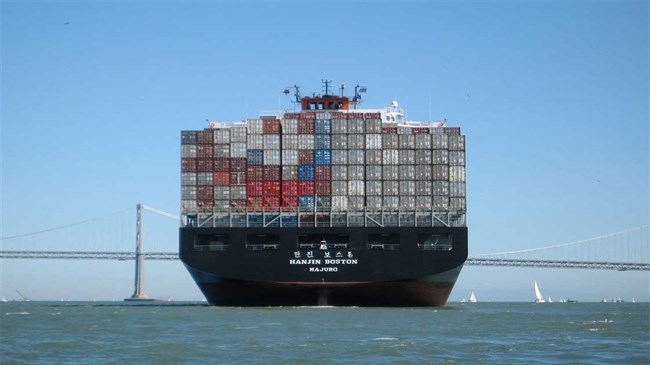The views expressed in this column are those of the author and do not necessarily represent those of IRNA

Although the US and China refrain from using the term ‘war’ to describe the status quo in trade relations between the world’s first and second largest economies, the realities demonstrate that a major conflict, with economic dimensions, has begun between the two countries.
Analysts maintain that the most obvious sign that a serious confrontation has broken out between the two countries is the domino effect of imposing tariffs on imports from the US and China by Beijing and Washington.
At the beginning, Trump levied additional tariffs on steel and aluminum imported from China on the pretext of making up for the huge trade deficit with Beijing; this was reciprocated by the Chinese government’s move to impose extra tariffs on the imports of 128 American goods. The total value of the Chinese tariffs stood at $ 3 billion, which fails to be a significant figure given the country’s $ 700-billion trade with the US.
However, by entering the field of producing agro crops, China not only responded to the White House’s move, but opened a new and vast front in the economic and tariff confrontation with the US.
A while ago, Beijing and Washington imposed their set tariffs on importing metals and agricultural crops. There appears to be no end to such reciprocal moves by the two sides as they are persistent in going ahead with such moves.
Earlier, CNN reported that in response to China’s reciprocal move, the Trump administration announced that it will levy a 25-percent tariff on the imports of over 1,000 Chinese goods. This came as, in less than 24 hours, Beijing threatened that it would impose the same amount of tariff on 106 goods imported from the US. Among the Chinese products put on the US extra tariff list are orange juice, soy beans and aircraft, which account for an important share of the two countries’ transactions and are capable of considerably impacting the US economy.
At present, both countries have announced that they are set to begin a new round of imposing tariffs on imports from each other. In his latest remarks in this regard, Trump said the US is prepared to levy an additional $ 100 billion in tariffs on the purchase of Chinese products.
Commenting on this, The New York Times quoted a spokesman from the Chinese Ministry of Commerce as saying, “The Chinese position has been made very clear. We do not want to fight, but we are not afraid to fight a trade war. If the United States follows through with its threats, the Chinese will follow suit to the end and will not hesitate to pay any price.”
CNN wrote that Trump’s move has even drawn criticism from his fellow Republicans, adding that even a senator described the move as the most pointless measure to amend the status quo.
In one of his latest statements, Trump stressed that China has targeted American farmers and producers, and thus urges the American bodies and organizations to draw up a plan to safeguard the interests of US industrialists and farmers.
Many analysts believe that China is not highly interested in heightening the economic tension with the US because in the beginning, it imposed tariffs only on a limited number of American agro products.
Nevertheless, the war spreading to other commodities such as China’s imports of soy beans from the US, or the auto and aircraft industries and even advanced technologies, can be an indication of the exacerbation of the tensions between Beijing and Washington.
CNN maintained that despite Trump saying that the door is open for further talks with China and Beijing expressing willingness to negotiate with Washington, it is not clear whether the two sides could arrive at an agreement.
As media reports suggest, Beijing undoubtedly stresses that it will reciprocate the US move. Even Chinese President Xi says the US is attempting to stop China, adding that, nevertheless, Trump will fail to continue treading this path as China is very powerful and a very large economy.
So far, the US has failed to pull off any outright victory in the tariff wars it has launched.
CNBC wrote that in the 1980s and 2002, the then US presidents failed to emerge victorious from the tariff wars they launched against Japan and the EU, respectively; they either entered into talks with these governments or were forced into a retreat.
By taking a glance at the US’ previous trade wars, one can infer that the fast and easy victory that Trump expects to notch up in the economic confrontation with China would not be achievable.
Commenting on the reasons why Beijing is certain about its ultimate victory in the trade war against the US, The New York Times wrote China’s growth is dependent on the country’s export market.
It added that the US is a major importer of Chinese products, saying the US can harm Chinese producers in many ways; on the other hand, China’s reciprocal tariff moves, involving only one third of the country’s imports from the US, would reduce the impact of Washington’s moves.
What is interesting in this trade war is that Beijing is not even among the first 10 biggest exporters of steel to the US. Currently, American auto and aircraft producers are demanding Trump to rethink his tariff move as they are losing a lucrative export market.
Given the present circumstances and with the intensification of domestic and international pressure on the Trump administration, a shift in the US government’s approach towards China trade is quite likely.
**The above analysis was first published by IRNA in Persian.
Source: Iran Daily
9060**1396
Follow us on Twitter @IrnaEnglish
 solhkhabar | Peace International News Agency Peace International News Agency , Peace News , International Agency News of Peace
solhkhabar | Peace International News Agency Peace International News Agency , Peace News , International Agency News of Peace